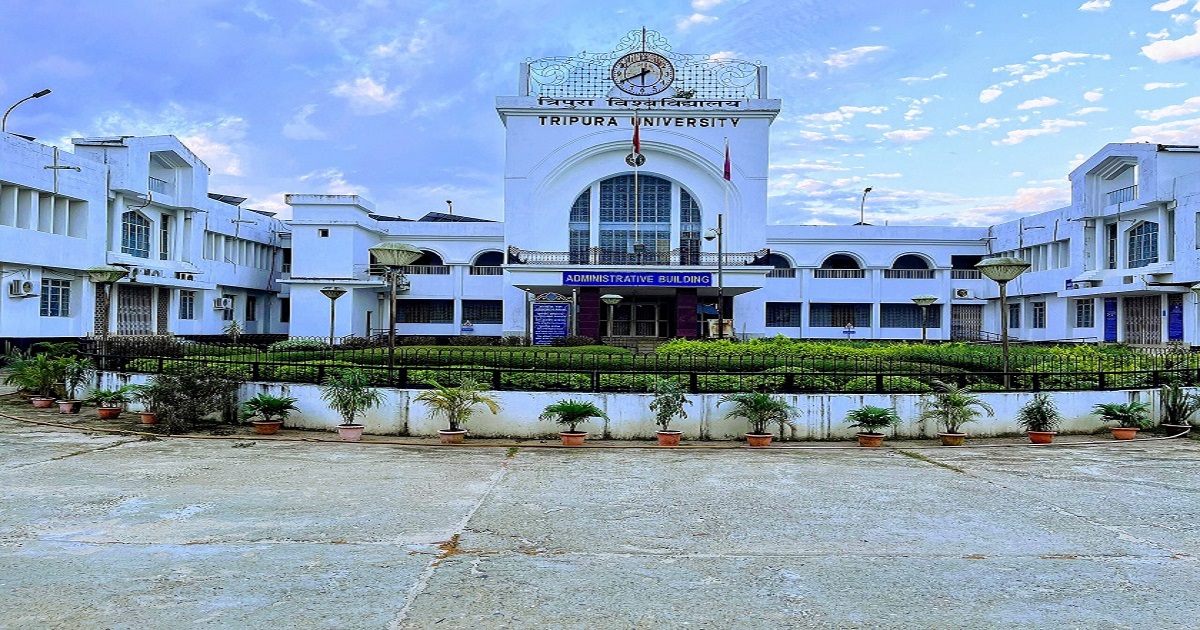Tripura University Faces Faculty Uproar Over Biometric Attendance Move, Administration Backs Down After Outcry
By Our Correspondent
Agartala, August 7, 2025
 A storm of dissent has swept through Tripura University after its administration attempted to enforce biometric attendance for faculty members, a move widely condemned by the teaching community as legally baseless, selectively applied, and an affront to academic freedom. Facing mounting pressure and growing criticism, the university administration has now put the controversial policy on hold.
A storm of dissent has swept through Tripura University after its administration attempted to enforce biometric attendance for faculty members, a move widely condemned by the teaching community as legally baseless, selectively applied, and an affront to academic freedom. Facing mounting pressure and growing criticism, the university administration has now put the controversial policy on hold.
The dispute began when the administration mandated biometric attendance for Assistant Professors, excluding Professors and Associate Professors without justification. Faculty members argue that such selective enforcement violates Article 14 of the Constitution and contradicts the Tripura University Act, 2006.
In a pointed rebuttal to the administration’s claims of following central government directives, teachers cited a Parliamentary response (Unstarred Question No. 2474, dated 03.01.2019) by former MoS for HRD Dr. Satya Pal Singh. The reply clarified that Central Universities, IITs, and IIMs are autonomous statutory bodies empowered to frame their own administrative policies, including those related to attendance. Additionally, the Allahabad High Court’s ruling in Suchitra Mitra vs. Union of India reaffirmed that university teachers are not bound by Central Civil Service rules.
Tripura University has 182 sanctioned teaching positions, including 50 Professors, 32 Associate Professors, and 100 Assistant Professors. However, the biometric attendance directive targeted only the Assistant Professors. This selective approach, critics argue, smacks of discrimination and a lack of transparency.
Faculty members have further challenged the administration’s claim that over 300 teachers support the move, pointing out that the university does not have that many active teaching staff. Allegations have surfaced that guest faculty often underpaid and insecure in their positions were coerced into expressing support, further undermining the credibility of the administration’s stance.
Teachers also questioned the relevance of biometric tracking for academics, who often engage in research, student mentoring, Ph.D. supervision, and administrative work beyond conventional hours. UGC guidelines expect faculty to spend significant time mentoring students and engaging in activities that cannot be quantified through biometric systems. "Biometric systems cannot track the 24/7 nature of academic responsibilities," said one faculty member, warning against the erosion of academic autonomy.
The teaching community underscored that no other central university in the Northeast including NEHU, Assam University, Mizoram University, or Manipur University has implemented such a measure. Even major central institutions nationwide have refrained from enforcing biometric attendance for faculty. “Why is Tripura University creating a precedent that even older, more established institutions have avoided?” a senior faculty member asked.
Further fuelling the crisis are long-standing allegations of corruption and non-transparency in faculty recruitment and administrative decisions. Faculty members allege that the Vice Chancellor and Registrar have frequently been absent from campus without official intimation, even as police investigations continue into past irregularities.
Procurement of biometric machines has also raised eyebrows, with questions over the tendering process and use of public funds without consultation or approval from statutory bodies like the Executive Council.
On July 30, 2025, the faculty submitted a representation opposing the move, while reiterating their commitment to accountability through academic audits, enhanced student feedback systems, and transparent performance evaluations. “We are not against accountability,” the statement emphasized. “We are against arbitrary and coercive surveillance disguised as reform.”
Amid intensifying criticism and growing unity among the faculty, the administration today issued a notification placing the biometric attendance initiative in abeyance. The decision, announced on August 7, 2025, states that the matter will be revisited after further discussions with teachers and deliberation in the next Executive Council meeting.
The move has been welcomed across the university’s academic community, with many expressing appreciation for the administration’s willingness to engage in dialogue.
While the biometric attendance controversy may have been temporarily defused, the episode has laid bare deeper issues in the governance of Tripura University including a lack of transparency, procedural irregularities, and top-down decision-making. Faculty members are now calling for an independent inquiry into past administrative conduct and a renewed commitment to democratic, consultative policy-making.
As one senior faculty member concluded, “This is not just about machines that track time. This is about the soul of our academic institution.”
more news...